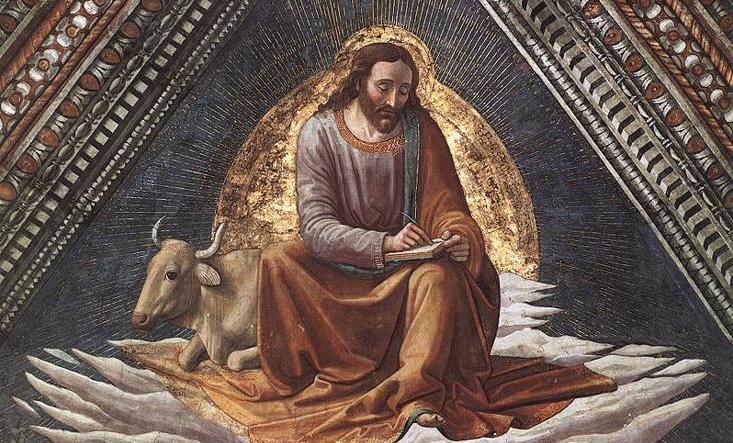St. Paul was having a rotten day. Our first reading today from Paul’s Second Letter to Timothy, shows this from the start: “Demas, enamored of the present world, deserted me and went to Thessalonica, Crescens to Galatia, and Titus to Dalmatia.” His litany of laments continues as he recounts that “Alexander the coppersmith did me a great deal of harm” when he “strongly resisted our preaching,” and that “at my first defense no one appeared on my behalf, but everyone deserted me.”
If it seemed that things couldn’t get worse, the insult to injury ringing in Paul’s simple requests shows otherwise: “When you come, bring the cloak I left with Carpus in Troas, the papyrus rolls, and especially the parchments.” One gets the picture of Paul cold, alone, and trying to squeeze his letter onto his last scrap of paper. Yet it still seems odd that parchment is what Paul “especially” wants in this desperate situation, alone.
Yet he was not all alone: “Luke is the only one with me.” Perhaps this gives us an insight into the particular importance of parchment. Paul and Luke, the human authors of over half of the New Testament, were together and were running low on papyrus rolls and parchment. If they had been deprived of parchment, imagine what we might have been deprived of!
Paul’s request for parchment can remind us of the incarnate nature of revelation. God did not choose to save us by a simple heavenly decree, but by becoming man and walking among us. Likewise, He did not give us His revealed words by dropping a book from the sky, but by inspiring and working through true human authors, authors who needed paper.
Fortunately, in His providential care for us, God provided parchment to Paul and Luke. Even with parchment, however, imagine all the other beautiful things that we could have missed if it were not for God’s providential arranging of events.
Take the beginning of the Gospel of Luke. From there we draw the beautiful account of Mary’s meeting with the Angel Gabriel, her visitation to Elizabeth, her Magnificat, the manger and the swaddling clothes. Yet, in the early Church, who witnessed these besides Mary who “kept all these things, pondering them in her heart”?
Thanks be to God, who in His Providence arranged for Mary to open the treasury of her heart’s memory, perhaps to St. Luke himself, who put them on parchment so that we too might hear of these joyful mysteries and ponder them in our hearts every time we pray the Rosary. Truly God is at work, ordering our human events to reveal Himself to us, even in days as rotten as St. Paul’s: “But the Lord stood by me and gave me strength, so that through me the proclamation might be completed and all the Gentiles might hear it.”
✠
Image: Domenico Ghirlandaio, St. Luke.







